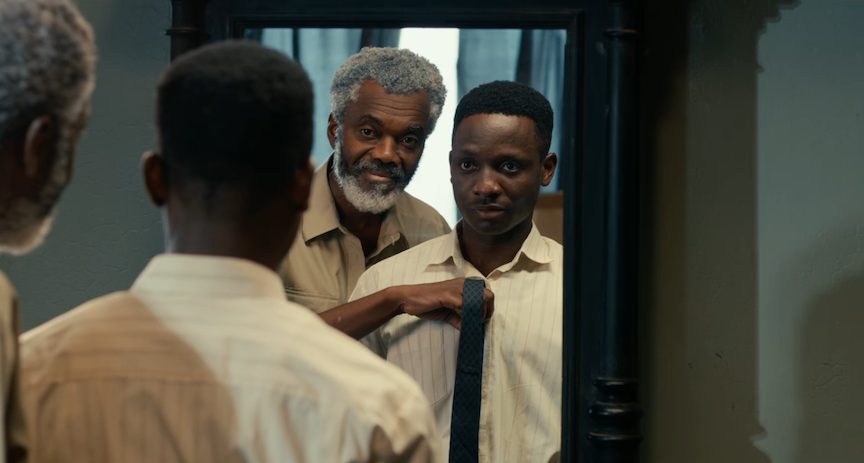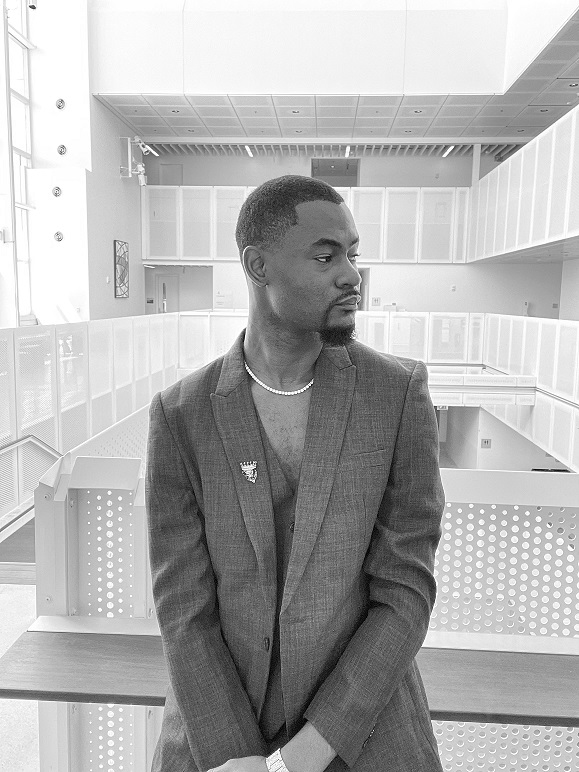A note on timing: This list comes now, four months later than it ideally should, because, caught up in other things, I considered not compiling it. But I did, because it’s a list for the archives, the value of which only increases as the years go by.
Two years ago, after reading my Profiles of Rita Dominic and Chidi Mokeme, a major director told me about a conversation that embarrassed her: a U.K. distributor had asked her for a list of the best actors in Nollywood, because the distributor searched online and couldn’t find a reliable recommendation, any list that was detailed and insightful and verified reputations, and she, the director, had no such feature to point to. She was embarrassed, she told me, at how little quality assurance there had been in our media; agreeing, I told her that I was disappointed that the industry’s most important stakeholders, especially the big stars, lacked media awareness. How could they want to be taken seriously by international distributors when they do not take their work seriously enough to sit down for conversations about craft?
There are film media platforms, What Kept Me Up and In Nollywood among them, that publish features, polls, and industry reports, always seeking to do good work, but on the other end are notable industry figures in thankless reception, who seem to think that doing an interview, to promote their own work, is a favour to any serious journalist or critic. That is how, two years later, there are still only two major Profiles of Nollywood A-Listers in existence: those two of Dominic and Mokeme. When the biggest stakeholders do not work to define their culture capital and shore up their legacy, they leave a promising industry vulnerable to devaluation, and that, being static in media awareness, is one reason why the two moneyed players, Netflix and Prime Video, have pulled out.
So when I debuted this list of “The 10 Best Acting Performances in Nollywood” last year, I hoped that it would become a point of reference: a reliable scale of quality based on that good old pleasure: the efficacy of embodiment. It is important in an industry where the gap between the good actors and the better ones is wide. This is not a list of my favourite performances; it is a list of the best performances that I think Nollywood has to offer, from the films and TV series that I saw. I looked at the skill of performance, the decisions the actor makes onscreen, and at the originality of character, whether the actor had offscreen references from other performances or in culture; and where the two are equally matched, I gave primacy to the skill of performance. But this doesn’t mean that I am confident that I nailed the ultimate best. On a different day, my ranking — based as much on logic as on feeling — might be different. What would not change, however, is that one actor has two different performances in the Top 5, and if this were a list of the best “performers,” and not “performances,” she would be No. 1.
Honourable Mentions
2024 was a good year for father figures. As a temperamental preacher drowning in grief who finds new purpose in mentoring his young housekeeper in Breath of Life, Wale Ojo’s Timi is memorable, a man of wealth, repute, and morality; he gives gravity to the story and was rewarded with Best Drama Actor at the Africa Magic Viewers’ Choice Awards (AMVCAs). As endearing, but with no fraction of that repute, is Kalu Ikeagwu’s stern, loving, and later sick man raising two daughters in Roses and Ivy.
Raising good sons in business requires a different skillset, and in Afamefuna: An Nwa Boi Story, Kanayo O. Kanayo’s Odogwu is a formidable presence, exuding wisdom, authority, and affection. It is a grounded portrayal of mentorship and traditional Igbo values, and a thought crossed my mind: After Pete Edochie, among Igbo onscreen patriarchs, it is Kanayo O. Kanayo. His most senior apprentice Paul is the film’s best character, played while younger by an upbeat, charismatic Chidera David, a relative unknown who should no longer be that, and older by Alexx Ekubo. Not raising one’s son has consequences, too, which is what we see in Kill Boro, with the child actor Kosisochukwu Ogboruche playing a boy who must protect his mother from his father.
Regular lives are unjustly upended in A Night in 2005, and even though these two minor characters are restricted to their farm, the script gives them their own reality, with Kayode Olaiya’s Baba fuming at her niece who has come to claim his land and Modesinuola Ogundiwin’s Funmi developing a side romance with a boy in the village. Away from their farm, controlling the social scene in Lagos, is Anjola Dada — Ireti Doyle in her impervious matriarchal element.
In a northern Nigerian town, another mother is determined to protect her deceased son’s legacy: Ummi Baba-Ahmed’s hitherto hostile Hajiya in With Difficulty Comes Ease, who, in a moment of vulnerability by her daughter-in-law, kneels to console and cry with her. When she shows minute kindness, it’s as if she’s wrestling her better judgement. The consistent Baba-Ahmed is a commissioner in Beyond the Veil, where her police detail, and the woman her son loves, is played by Ame Aiyejina. The sister of Aiyejina’s Zainab is Badriya, who becomes the second wife to Yakubu Mohamed’s abusive Sadiq. On the series, a different man wants love from Badriya’s friend Na’ima: Vine Olugu’s Mathew.
Olugu adds swagger to The Betrayed, where he is a yahoo boy enlisted to track down a mistress of the Lagos underbelly. But the star of that film is Uche Montana, a grieving wife-turned-detective determined to find out who set her husband up. Montana also leads Roses and Ivy, as the childless wife of a man who betrays her trust, and in the closing scenes, that man, Taye Arimoro’s Lanre, is affecting when he sees the framed photos of babies in her estranged wife’s house, and, choking back sobs, he asks: “Did you get pregnant?”
A different kind of man keeps his lover through isolation in the historical mystery A Green Fever. Planning a coup, Colonel Basiru must be tight with information but fails, yet in the hands of William Benson his presence remains weighty even as his thinking is not. Benson again appears as a juju man with sinister glee in the biopic House of Ga’a, another historical drama, set further back in time in the 17th century, with another military man who fails to keep his lover. Femi Branch’s Bashorun Ga’a has the makings of a truly complex villain and works charisma that anchors the narrative, but we do not see enough depth in his motivation. It is a performance that might have nested in the Top 10 were it not also reminiscent, some would say derivative, of the Yoruba warlord figure made mainstream by Femi Adebayo’s acclaimed work in Agesinkolo: King of Thieves and, in a repeat of himself, Jagun Jagun. But Branch builds a compelling dynamic with Tosin Adeyemi, who is making her major film debut as Ga’a’s lover Zeinab, a Nupe woman captured in battle but who does not offer loyalty easily. Jide Oyegbile is Ga’a’s ruthless warrior son Olaotan, and on the lowest rung of the household is Ga’a’s drunken brother Olubu, assumed thoroughly by Adedimeji Lateef.
Funke Akindele has a minor supporting role as Ga’a’s first wife in House of Ga’a, but she is here for her lead performance in the ensemble drama A Tribe Called Judah, where she, a mostly comedic actor, once again asserts dramatic chops as the mother of five sons so different from one another. Jide Kene Achufusi renders the eldest son Emeka with nuance, and Timini Egbuson refreshingly trades in swagger for a more rugged edge as the layered, cruising thief Pere, and Tobi Makinde somehow achieves a delightful agbero. In another seamless showing that can be taken for granted, Nse Ikpe Etim is the sneering furniture store manager and, later, robber.
Finally, also coming close to the Top 10 is Efa Iwara, an actor who has been gifted opportunities that would have turned an exacting performer into an acclaimed one, roles like the rebel journalist in King of Boys: The Return of the King, but has been held back by his lack of charisma. In A Night in 2005, he finally finds a way to stamp his presence. His Opeyemi Dada is a convincing villain: a spoiled son and gubernatorial candidate, a seductive, sadomasochist manipulator of women who is himself at the whims of a puppeteering mother.
The Top 10
10. Kunle Remi, Muri & Ko
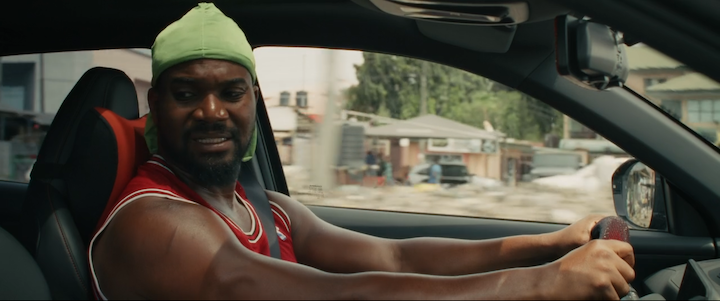
The rascal with a heart of gold is a tried and tested character in Nollywood — a sanguine stereotype upon which actors have built entire careers — but Muri feels realer than most, partly because he has a definable dream: stumble upon money, make a better life for himself. So when he steals a woman’s SUV, he is ecstatic, visualizes this life he has manifested, until the boy sleeping in the backseat awakens. Muri will not let even him get in the way of his dream.
Affectation, attitude, and attire are usually enough to build a character like this, but by enlivening him with energy and suffusing him with minor tics, Kunle Remi finds Muri’s pulse and makes us see his life as true. It is in the playful annoyance with which he says, “Good boy, good boy, come down,” as he brings Cole out of the SUV and leaves him by the roadside. He will grab the bags of passersby, steal side mirrors of cars, eat food on credit and pay by washing restaurant dishes, and steal a car, but he will not shirk responsibility for this boy, even if he has assumed it grudgingly.
9. Deyemi Okanlawon, 3 Working Days
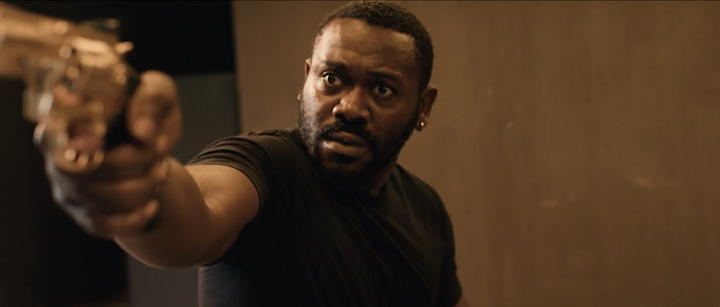
Although undermined by direction that allows for no immersion or real depth, 3 Working Days pushes through because Deyemi Okanlawon has a big enough onscreen personality to hold our attention, and that, too, is skill — the kind of shouldering skill that is lacking among many new-generation male Nollywood actors. He plays a former combat agent who holds up a bank, to force them to give him his own money so he could pay for his child’s medical expenses, but at the wrong time, as an actual robbery is ongoing.
It is a depiction of citizen frustration, and what Okanlawon does is keep us in the mind space of a man with some power in the world but who is subjected to a different system of power at the risk of his son’s death. And this after his wife has been murdered. Okanlawon goes through emotions: grief, anxiety, fear, disappointment, and, ultimately, fury. He will not take that subordinate position, will not be an object in the hands of fate, so he seizes control.
8. Stan Nze, Afamefuna: An Nwa Boi Story
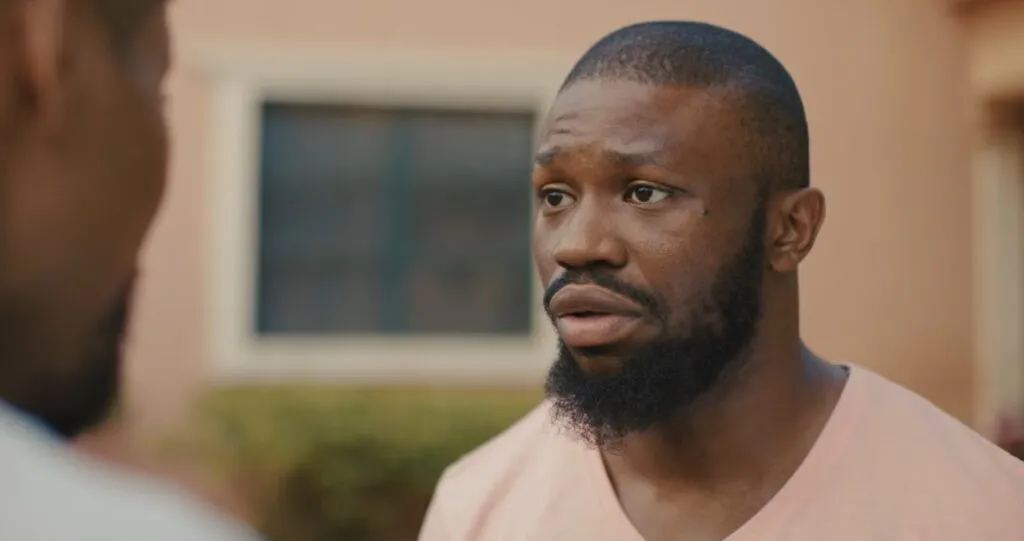
When his master Odogwu settles Afamefuna, to his apprentice’s shock, Stan Nze is tasked with several opposing emotions, because that development, for all its climactic joy, is also the point of descent, the eruption of the central conflict in Afamefuna: An Nwa Boi Story. Afamefuna, a senior but not the oldest apprentice, has just helped Odogwu retrieve his wares at the wharf, and on their return to the office, Odogwu tells Paul, the senior apprentice due for settlement, to bring him wine and kola. The boys erupt in joy for Paul: finally, his time has come, which means that, one day, theirs will, too.
But when they reach Odogwu’s house with the bottle of wine, the people they see gathered are not Paul’s family but Afamefuna’s. The man is in shock, is in joy, and then he realizes: Odogwu settling him means that he has leapfrogged Paul. Nze takes Afamefuna from Odogwu’s living room to the car where Paul is fuming, and Nze brings, too, the spectrum of emotions — shock, joy, and relief for the sudden good in his life, anxiety, fear, and heartbreak for his friend — that one feels when they have been placed, inadvertently, in a position of betrayal they couldn’t possibly give up.
Nze is an actor with gravitas, in the same category as Nonzo Bassey, Swanky JKA, Deyemi Okanlawon, Kunle Remi, Tobi Bakre, and Timini Egbuson: among the best male actors of the younger generation. But not all of them have Nze’s relatability, that wash of affinity that sweeps across Afamefuna’s face in the opening scenes when he learns that Paul has been murdered, and that he, who also quarreled with his one-time friend over a love interest, is the prime suspect.
Read the review of the film by Victor Orji Ebubechukwu.
7. Uche Montana, Roses and Ivy
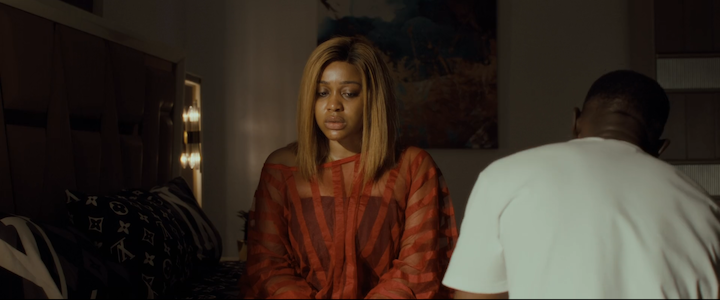
It takes some time, but Uche Montana finally finds her pitch in the bumpy latter episodes of Roses and Ivy, and she leaves it all on the floor. As Roselyn, a girl shielded from reality by her big sister Evelyn, a woman who falls in love with and marries the man that once was her big sister’s childhood best friend, a childless wife who desperately turns to her sister for help, she wallows in frustration, is brutally blindsided, and bares her broken heart.
Montana does frustration well, and there are scenes where Roselyn’s agitated helplessness leaps off the screen. “If I don’t have a baby soon, I will actually go mad,” she assures her husband. “And there’s no telling what I will do to myself.” We believe her. She is suffering the shock of someone to whom life has given almost everything else but the thing most essential to her sense of meaning. Even as the series’ climax briefly brushes with melodrama, Montana doesn’t take Roselyn overboard when she stumbles upon the betrayal of her life. She keeps her working to suppress her rage — until she no longer can. Years later, beyond that combustion, Montana brings her back down to a place of simultaneous serenity and unresolved trouble, and we continue to believe her.
6. Kehinde Bankole, Funmilayo Ransome-Kuti
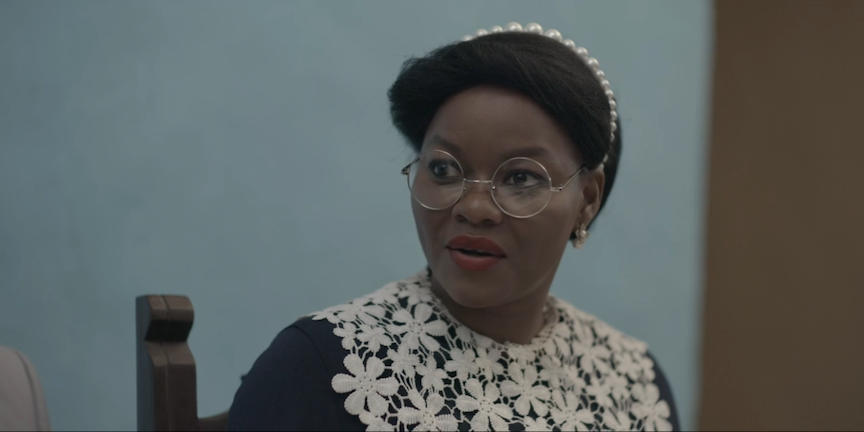
Not all the nuts and bolts of Bolanle Austen-Peters’ biopic are in place, which is why Kehinde Bankole’s rendering of the Lioness of Lisabi must be measured in context — of story, craft, and embodiment. Funmilayo Ransome-Kuti’s is a story we know, one of the first that we are told in elementary school: feminist activist, Fela Kuti’s mother; and so we know she was a fierce woman. But what amplifies this version of her is the costume and makeup, the visual peg to a specific era. Those do not, however, account for how the character wears all of this, reputation and attire; and how much heart we see, the dignified way that she communicates across class lines and lights the womanhood in her followers, is because Bankole gives her a decisive aura, a radiance to embrace.
Details enliven the portrayal of a real person, and Bankole accretes a manner that I suspect is not from the script. She is the suture maintaining the flow of a uneven film. We see not only a woman and wife and mother and leader, we see a legend unfold. Another film may, hopefully, come along to be the defining story of Funmilayo Ransome-Kuti, but another performance may struggle to displace this one.
5. Uzoamaka Doris Aniunoh, A Night in 2005
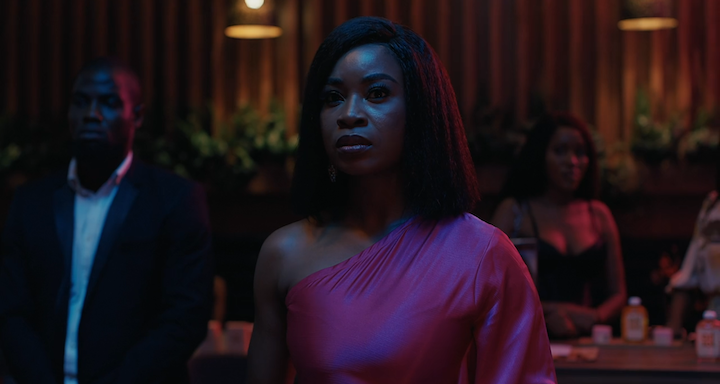
Kelechi Dada’s eyes are pensive and inscrutable, active with thinking and processing, and it is in them, and on her face, that much of Uzoamaka Doris Aniunoh’s carefully shaded performance as the classy, ambitious wife of a gubernatorial candidate in A Night in 2005 plays out. The feminist she is in public is far from the fearful wife she is in private, and the façade will no longer hold. She must navigate two forces — her aggressive husband Opeyemi and her ruthless mother-in-law Anjola — and still maintain her bearing. Slowly, Aniunoh unwraps her betrayal and revolt.
Aniunoh is a responsive scene partner. When Opeyemi throws her on the bed in a burst of masochism, she is shocked, as if wondering how she wound up in this place with this man. You see it in her eyes, her train of thought, uncollected in her head. The next time her husband tries it, you see how, in her head, she is fighting a battle her body is prone to losing.
Those eyes are ever on guard, and at Ari’s book launch, as Ife exposes Opeyemi, they are searching, unsteady, the only evidence that Kelechi is not as internally composed as she projects. On the ride home, Opeyemi tells her, “I have apologized and you will accept that apology and move on.” She does not, and her face melts when she replies with the question she has been wanting to ask: “Did you rape that girl, Ope?” You can tell she hasn’t decided yet what to do; she knows the truth, she knows the right thing to do, but she hasn’t decided yet. It is my favourite performance of the year.
4. Genoveva Umeh, Breath of Life
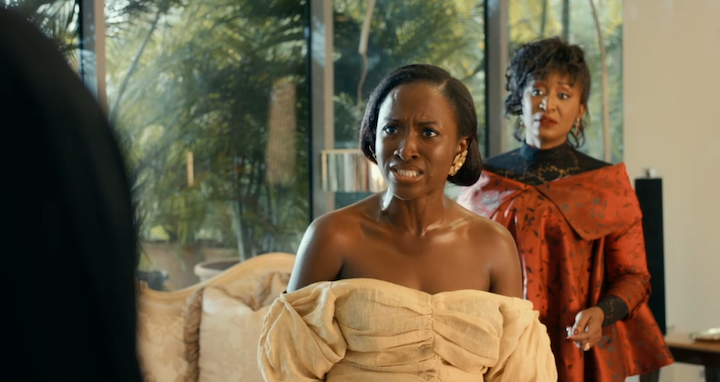
It is a tested tactic: often, the easiest way to drive a story forward is to introduce in the mix a character different from the rest, a character on the edge, and, on paper, Anna in Breath of Life is just that: a character that is hard for a good actor to mess up. Yet the way that she breaches the central relationship between mentor Timi and protégé Elijah, and turbocharges the film, is down to the dynamic impulse of Genoveva Umeh.
In every scene, she shines. Her Anna will not sulk; she will fight; and she is prepared to take on two otherwise scary men: her father and her future father-in-law. There is emotional calibration here, impressive when she barges on the room door, taking her reaction higher and higher, but not so high that it shifts into a gear of overacting. All we see is a passionate girl in the throes of love, a girl so used to getting what she wants that, when she finally sees something she needs and cannot have it, she flips into unpredictability.
Stripped down to her bones, Anna is something of a Nollywood trope: the daughter of a wealthy man who falls in love with the son of a nobody. But that trope is also life, and the difference between a trope and a realized character is how much flesh an actor amasses to cover the bones.
Read my analysis in our “Best Nollywood Films and TV Series” list and then a different review by Iheoma Uzomba.
3. Uzoamaka Doris Aniunoh, With Difficulty Comes Ease
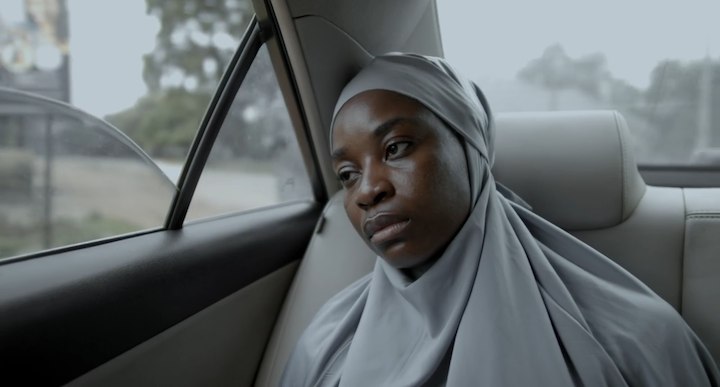
For long, one problem with Nollywood performances was the overacting, the immersion in the maudlin, the stretch into caricature, and this is partly why Doris Uzoamaka Aniunoh’s reticence is a breath of fresh air. There are a handful of actresses who could do Zainab justice, but I suspect that most of them would have gone one way: outwards, seeking sympathy; Aniunoh does not so much go the opposite direction as anchor Zainab in the middle, because she understands that what this Muslim Igbo widow in an Egbira household needs is not to prove something to the world but to hold herself in place, be her own rock, her own stability.
A problem-solver turned housewife, an intelligent woman scrambling to relearn her dead husband’s business, her life in grief is grim but she’s gutsy. She is tired, but she will not let the world see her crack, and Aniunoh’s choices intrigue. When the landlord carts away her husband’s wares, a different actress might have broken down and let us see her pain, and that would have been apt, but Aniunoh does not let Zainab’s splintering show; she puts her fingers on mouth, the nail-biting pose of someone dealing with a blow but half-calculating for a solution. When they tell her that her husband owes another N800,000, she keeps a face that might be Aniunoh’s own signature steely determination, and by not fracturing for our sympathy, by going through the book in incredulous laughter, she establishes not only Zainab’s drive but her temperament. This, we see and worry for her, is how this woman will go through the world from now.
She is a woman who asks questions, following where they lead, impatient in suffering fools. At their meeting in a restaurant, Riyan, the man hoping to turn their friendship into romance, quips, “Why are you even selling below cost price?” Zainab is swift, worried, and impatient in her reply: “Ask me that again when you can’t afford to buy beans because the prices have gone up again.” It is a portrait of pain made fresh in resilience. There are no fireworks in the acting here; the originality is enough. There is only a widow and her problems, and they are as big as her world.
2. Chimezie Imo, Breath of Life
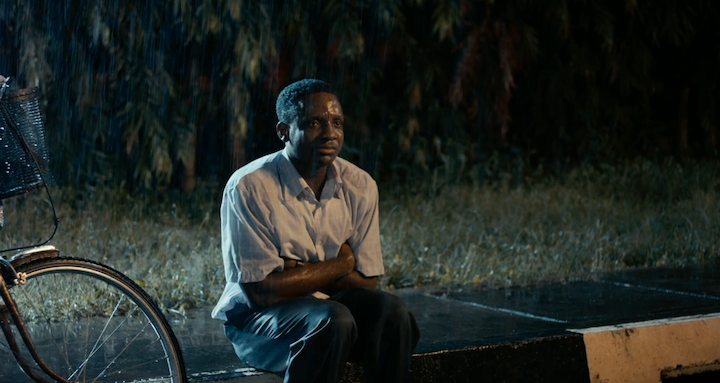
Elijah, the narrator of Breath of Life, appears onscreen 20 minutes into the film, and for the next hour and a half, he is the vortex of our empathy. It helps greatly that Chimezie Imo has an endearing, sympathetic face, a look of burdened guilelessness that, in the 2000s, would have seen him typecast as the oppressed houseboy, a male Nkiru Sylvanus. Yet there is an understated coordination in his work here, a unity of intent and affect that lets him wear this character like a skin.
We first meet him on his bicycle, a young man with an innocent smile, in search of a job after finishing his National Youth Service, enroute to the man who would change his life. He has minor ambitions and is full of hope — powerful hope that far outstrips the presumed smallness of his life. It is the demeanor of an underdog, and, in his induction into Timi’s life, his emotions become ours. The innocence is why we feel affected by him, by how he receives the intimidation of the chief, and, in a tortuously beautiful moment, how he, a man with asthma, sits all night in the rain, outside Anna’s window. His love for her and all else he loves is quietly moving, the only steady presence in a world of willfully erratic behaviours.
Imo is not the sole focal point of the film. He shares lead duties with the honourably mentioned Wale Ojo and tempers the veteran actor’s gravity with his vulnerability; Ojo’s Timi is the source logic and head of the story and Imo’s Elijah is the emotional barometer, the one whose reactions shape ours. Naturalistic acting looks easy, and perhaps it is even easier for a young actor in the biggest role of his career to cower in the presence of a veteran, but what I see Imo doing takes something more than the camera can capture: it takes a mindset. Applaud the casting director.
Read my analysis in our “Best Nollywood Films and TV Series” list and then a different review by Iheoma Uzomba.
1. Ini-Dinma Okojie, A Night in 2005
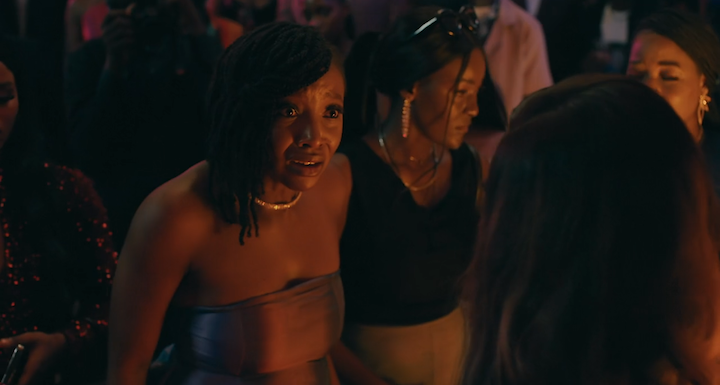
There is melancholy in Ini-Dinma Okojie’s characters, in their steered treads on the rim of combustion, and as the focused centre and driving impulse of A Night in 2005, she casts her Ife in suspended terror. She is beaten and it’s in her eyes and demeanor. Her face and body language suggest something underneath, an internal argument, a deferred conflict in her soul. She is a rape survivor held hostage by her body and her memory, a state hidden from even the people who love her, who would have taken her tendency to withdrawal as a personality trait.
Okojie enlists her whole body to by turns hide and reveal Ife, and one feels no disconnect, not a single missed beat. Scene by scene, she calcifies, grappling with developments. She is decisive and controlled, something she has had to learn, to impose on herself, so that she is ready for anything but not overwhelmed by it. So when, at her best friend Ari’s book launch, Ari tells the guests that she wants to thank a longtime friend, an expectant Ife briefly lights up in shyness, but Ari calls up Ope instead, Ope the gubernatorial candidate and her rapist, and Okojie flits Ife’s face into surprise at the minor betrayal, then irritation at the applause for him. It sets her off. At the book launch alone, she runs a gamut of reactions, and it is one of several meaty scenes — and Okojie can turn routine movements into actorly gestures — that make her performance the most galvanizing on this list.
Okojie’s work here reminds me of Rita Dominic’s in the rape survivor drama Light in the Dark, although A Night in 2005 advances the agency of its female characters. But I think of her work more as a complement to her peers’. Along with Kehinde Bankole, Doris Uzoamaka Aniunoh, and perhaps Genoveva Umeh who I haven’t seen enough of, Okojie is one of a small group of young female actors whose talents are on par with the veterans’ and whose work gives me relief that the industry has a future.
Paula Willie-Okafor, Orji Victor Ebubechukwu, and Iheoma Uzomba contributed to this feature via previously published reviews.
To send us screeners for our 2025 list, please email editors@opencountrymag.com.
If you love what you just read, consider making a PayPal donation to enable us to publish more like it.
No One Covers Nollywood Like Open Country Mag
— The 10 Best Nollywood Films and TV Series of 2024
— Rita Dominic‘s Visions of Character
— The Epic, Transformative Comeback of Chidi Mokeme
— How Mami Wata Swam to Sundance
— How Dakore Egbuson and Tony Okungbowa Traverse Trauma in YE!
— Awaiting Trial: Families of SARS Victims Speak in Devastating Documentary
— Country Love Depicts Tenderness in LGBTQ Lives
More Lists and Series from Open Country Mag
— The Best Films, TV, and Performances of the Year: 2023, 2024
— The Rovingheights x Open Country Mag Bestseller List: 2024, 2023, 2022
— The Notable Books of the Year: 2024, 2023, 2022, 2021
— Our Top Stories of the Year: 2024, 2023

